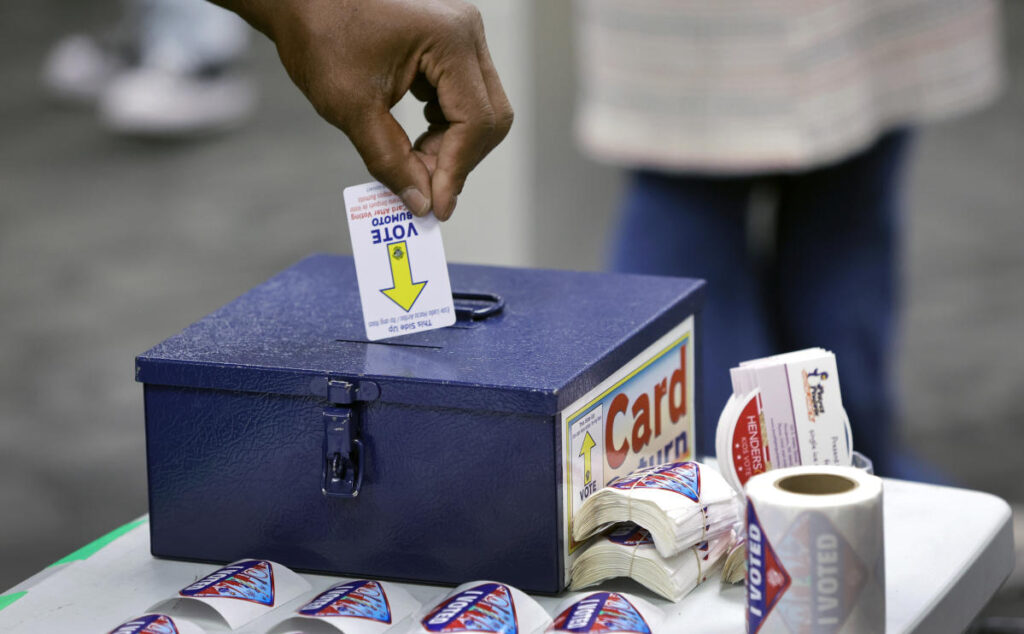In Nevada, the aftermath of the recent election has been marked by a stark divide between urban and rural counties in terms of the certification of election results. While the majority of rural counties, favoring President-elect Donald Trump, smoothly certified his victory, the two populous counties—Clark, home to Las Vegas, and Washoe, home to Reno—faced significant turmoil. These counties experienced heated public meetings that echoed the contentious atmosphere seen in the previous election cycle, following Trump’s loss to President Biden. Overall, Nevada’s election process had a deadline for counties to finalize their results, which all 17 counties met, leading to further review by the Secretary of State and the Nevada Supreme Court, with a recount option available for losing candidates until November 20.
In the rural counties, Trump’s victory was not only expected but celebrated, with officials praising the election administration for their robust and efficient handling of the voting process. Meetings were held where election results were certified unanimously in support of Trump, despite earlier controversies surrounding his claims of election fraud. Rural officials expressed little evidence of issues, contrasting sharply with the experiences in Clark and Washoe counties where conspiracy theories took center stage during certification discussions. This dissonance illustrates the broader national divide regarding perceptions of election integrity, which has been significantly exacerbated in recent years.
Washoe County’s election commission meeting highlighted the tension and discord that emerged during the certification process. After a long session filled with public comments laden with unfounded claims about security issues and potential manipulation of the voting equipment, the board ultimately voted to certify the election results. The lone dissenting voice against this decision was Commissioner Jeanne Herman, who has persistently resisted certifying results over the past few election cycles, advocating for a return to paper ballots and hand-counting votes—a stance that reflects her alignment with ongoing conspiracy fears regarding the voting process.
Contrasting with Washoe County, Clark County’s commissioners faced a similar barrage of allegations and conspiracy theories during their certification meeting. Many attendees expressed disbelief over Trump’s losses in their county, despite his statewide victory. Election officials, including Lorena Portillo, clarified that a small number of ballots had been discovered late in the process but affirmed that counting these ballots had no impact on the overall election outcomes. This situation further highlights the complexities involved in ensuring transparency and security in elections amidst growing mistrust among certain voter demographics.
The atmosphere surrounding the certification processes in these key counties revealed fractures not only within the election administration but also amongst the voting public itself. Many people attending these meetings appeared deeply invested in promoting narratives that dismissed the legitimacy of the election outcomes, reflecting a broader sentiment among certain groups who continue to question the integrity of electoral processes. This deep-seated skepticism reveals stark divisions within the electorate and raises significant questions about how such conspiracy theories can be addressed moving forward, particularly as they threaten the fabric of democratic participation.
As Nevada’s electoral results enter the final verification phases with the Secretary of State and the Nevada Supreme Court, the divergent experiences of its counties underscore a national debate on election security and public trust. Rural counties have demonstrated a level of agreement and support for the election processes, while urban centers continue to grapple with allegations and a climate of distrust. The aftermath of this election may call for renewed efforts towards transparency in electoral processes and the need for community engagement to bridge the gaps in understanding and confidence among all voters, ensuring that they can trust the outcomes of their elections in the future.

